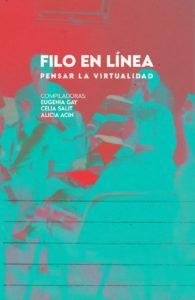Filo online: Thinking about virtuality
Keywords:
virtual education, UniversitiesSynopsis
This volume arises from the concern of the community of the Faculty of Philosophy and Humanities of the National University of Córdoba to reflect on the characteristics, transformations, political-pedagogical meanings, and challenges of teaching and learning in the context of the COVID-19 pandemic. These concerns were channeled into the Interdisciplinary and Inter-Faculty Conference “Filo en línea” (Philosophy Online), held with the purpose of reflecting on what we did as a community in the context of the pandemic, the most representative outputs of which this publication attempts to account for. The book begins with a text by a research team led by Celia Salit and co-directed by Dolores Santamarina, the result of interdisciplinary research for the project "Introduction to Teaching. Pedagogical and didactic knowledge of graduates of the Philosophy and Education Sciences teaching programs.“ Although not part of the conference presentations, this work was included because it accounts for the pandemic as an ”event," a category that provides a possible theoretical framework for interpreting the situation as something new.
Chapters
-
Introduction
-
Teaching practices and knowledge in the context of a pandemic. Readings between philosophy and pedagogy
-
Thinking about virtuality
-
Opening
-
Rethinking community from the perspective of graduates. Initial and necessarily incomplete remarks
-
Cataloging and conservation work on the archaeological collection of Jesuit Oscar Dreidemie in the new normal
-
What would Malinowski think? Challenges in anthropological research during the pandemic
-
The impact of ASPO on co-governance spaces in the FFyH: the difficult recovery of “customary balances”
-
About Virtual Learning Environments (VLEs). Some questions about their political, social, and pedagogical significance in a context of social isolation
-
Being-body(ies)-in-the-world; creative entanglements of bodies, affections, and technologies
-
Youth and Adult Education in the Context of a Pandemic. Actions and Reflections on Teaching Practice
-
Education, disability, and virtuality. Stories of experiences at the FFyH
-
Strategies, limitations, and possibilities How can we think about content so that it is viable in virtual space?
-
Inclusive, high-quality, tuition-free higher education in times of pandemic
-
The face-to-face/virtual debate: the dangers of normalizing remote education
-
Closing Remarks

Downloads
Published
Categories
License

This work is licensed under a Creative Commons Attribution-NonCommercial-ShareAlike 4.0 International License.


